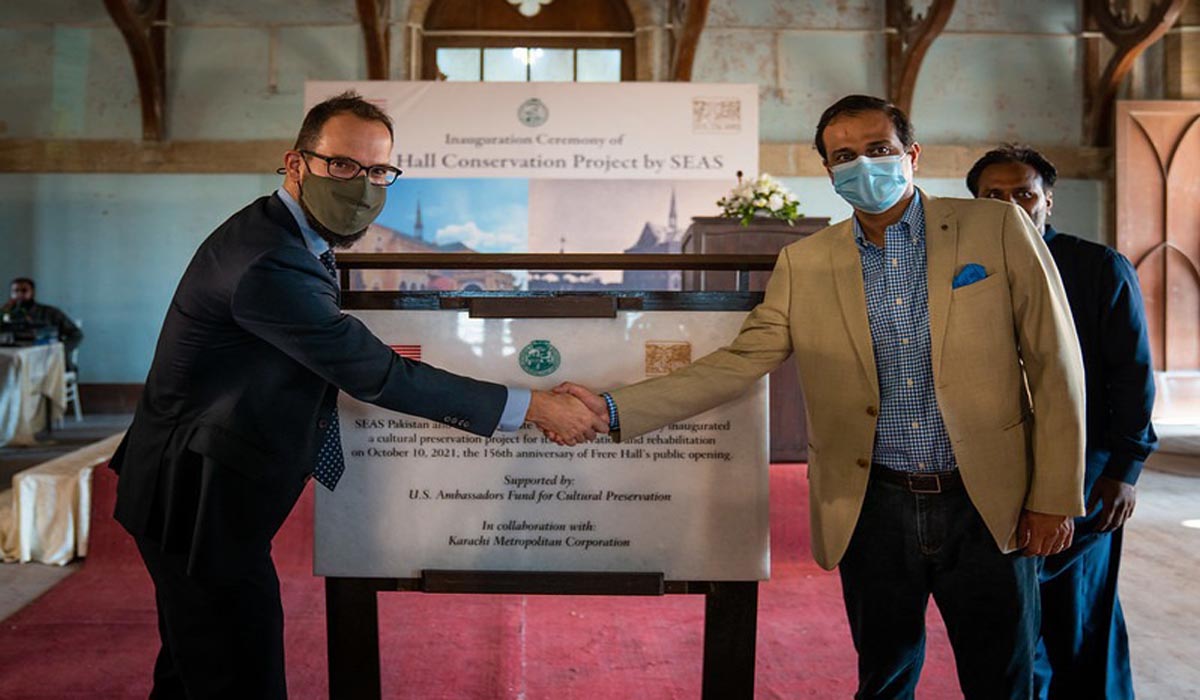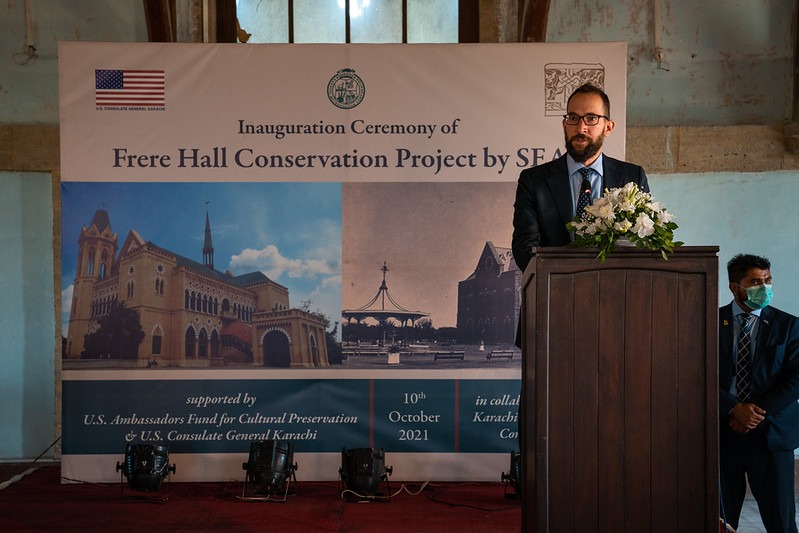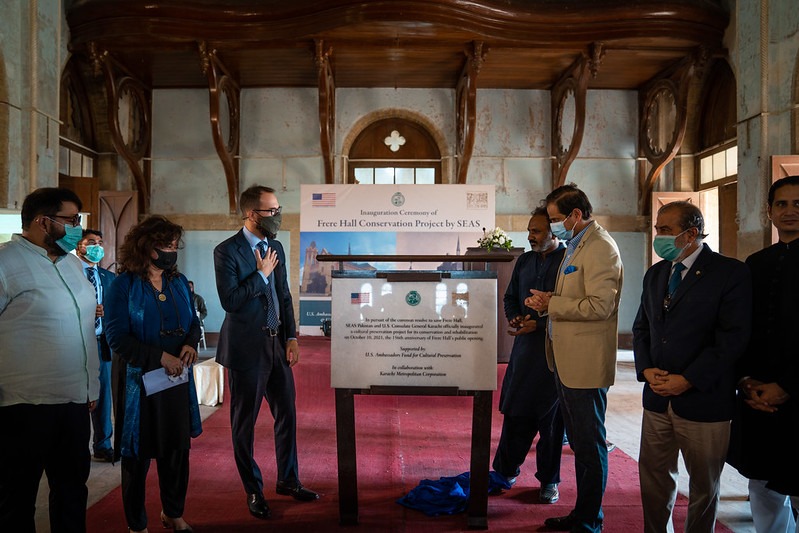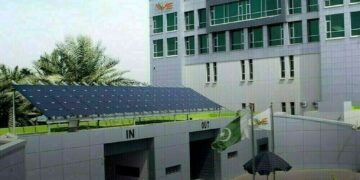Karachi, October 11: The U.S. Consulate General in Karachi and Karachi Metropolitan Corporation (KMC), in partnership with the Sindh Exploration and Adventure Society (SEAS), launched a conservation project to restore Frere Hall on the 156th anniversary of Frere Hall’s public opening. The U.S. Consulate General gave a grant under the U.S. Ambassadors Fund for Cultural Preservation (AFCP) to SEAS, who will carry out the project.
U.S. Consul General Mark Stroh, Karachi City Administrator Murtaza Wahab Siddiqui, SEAS President Dr. Kaleemullah Lashari, and SEAS Secretary General Dr. Asma Ibrahim took part in a ceremony to officially commence the project and unveiled a plaque to mark the occasion. Several renowned architects, artists, educators, and intellectuals attended the event.
Noting that the United States has awarded more than $6.4 million dollars (approximately 1.1 billion rupees) for 30 such cultural heritage projects in Pakistan, U.S. Consul General Mark Stroh explained, “The United States has deep respect for Pakistan’s rich cultural heritage, this project at Frere Hall is a testament of our commitment to work with Pakistan and Sindh province to preserve Pakistan’s rich cultural heritage.”
The conservation project of the historic Frere Hall building will restore original elements and return the site to its full capacity and traditional glory. This effort will conserve and strengthen the historic building. Work will include stabilization of the Hall’s vintage staircase, restoration of the teak wooden flooring on the first floor, foyer rehabilitation, conservation of doors and windows previously damaged from bomb blasts, rainwater prevention measures, repair of damaged waterproofing of the roof, installation of new electric wiring distribution, and rehabilitation and conservation of the tilting and damaged turret and tower. SEAS will also document, assess, and report in detail on the existing structure and its conservation issues for further future projects.
These efforts will ensure this Karachi landmark will serve the public well into the next century.
U.S. cultural heritage efforts range from preserving Gandhara and Mughal heritage to the restoration of architecturally significant Hindu monuments and Sufi shrines. In Sindh, other previous U.S. Ambassadors Fund for Cultural Preservation projects include the restoration of the tombs of Sultan Ibrahim and Amir Sultan Muhammad at the Makli Hill necropolis, the conservation of Varun Dev temple and the restoration of the Nusserwanjee building at the Indus Valley School of Arts and Architecture.























